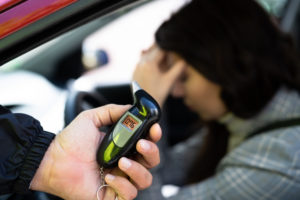
According to Article 49, Chapter 10 of the Texas Penal Code, you are legally intoxicated in Texas if you drink and drive with a blood alcohol concentration (BAC) of 0.08% or more. However, many people fail to realize that you can be arrested or charged with a DWI (driving while intoxicated) offense as soon as drugs or alcohol affect your ability to operate a vehicle, irrespective of your BAC.
There are many ways we can help you tackle the charges you face for drinking and driving. You can learn more during a free consultation with us today.
Drinking and Driving in Texas
In Texas, DWIs are used for drivers over the age of 21 found drinking and driving. Meanwhile, driving under the influence (DUI) charges apply to underage driving.
Drinking and driving carries harsh penalties, many of which can affect you for life. An overview of the fines and penalties you can receive for drinking and driving, as per the Texas Department of Transportation (TxDOT), are outlined below:
- First DWI offenses carry fines of up to $2,000, between 3 and 180 days in jail, and the loss of your driver’s license for up to a year.
- Second DWI offenses carry fines of up to $4,000, between 1 and 12 months in jail if convicted, and a loss of your driver’s license for up to 2 years.
- Third DWI offenses carry fines of $10,000, between 2 and 10 years in prison, and a loss of your driver’s license for up to 2 years.
Additional state fines of $3,000, $4,500, and $6,000 respectively will also be assessed when you are sentenced.
Additional Penalties in DWI Cases
If you were driving under the influence with a child under the age of 15 in the vehicle with you, you can be charged with child endangerment. In addition to the penalties above, this can carry additional fines of up to $10,000, prison time of up to two years, and a loss of driving privileges for an additional six months.
Driving with an open container of alcohol in your vehicle is illegal, even if you are not drunk. As per Texas’ open container laws, bottles, cans, and other receptacles that contain any amount of alcohol and are open, have been opened, have a broken seal, or have missing contents are counted as open containers.
If such a container is found in the passenger area of a motor vehicle while the vehicle is on a public highway, you can be charged with an offense. This applies if you knowingly possess an open container in a passenger area of your vehicle, even if you are stopped or parked.
Serious Injuries Can Bring Additional Charges
Finally, in addition to the above, you can face charges of intoxicated assault if you cause serious bodily injuries to anyone while operating a vehicle. Intoxicated manslaughter charges can be levied against you if you cause the death of someone while operating a vehicle while intoxicated.
Fighting DWI Charges
From the above, it is clear that a DWI is a serious offense. A DWI on your record—especially multiple DWIs—can lead to increasingly harsh penalties.
An attorney from our team can help you fight the charges you face. A few strategies we may be able to use to do so are outlined below.
- If you can prove you were not drunk, not operating a vehicle, or not operating a vehicle on a public roadway when arrested or issued a DWI, you may be able to dismiss the charges.
- If you can prove that the field sobriety test equipment used to measure your BAC was faulty or was operated by someone not certified to use it, you may be able to dismiss the DWI.
- If you can show that your arresting officer or the officer who issued you a ticket did not have just cause to stop you, this can be used as grounds to dismiss your case.
- One way to lower the charges you face is by proving you had a BAC lower than what you were charged with.
- If you have an otherwise clean record, you may be able to lower the severity of a DWI charge or have it dismissed.
- An attorney can help you make a case for lighter penalties, such as community service in lieu of fines, jail times, and license suspensions based on your driving record and future commitments to driving safely.
- The statements of witnesses can be used to corroborate your claims that you were not drinking and driving when stopped or arrested.
- The testimony of an expert can be used to demonstrate how DWI test results are not accurate or are unreliable and are therefore inadmissible as evidence against you.
DWI Records Cannot be Expunged in Texas
If you cause bodily harm to someone in an accident that involves drinking and driving, your records can never be sealed. In addition to penalties and potential jail time, you can lose your driving privileges and may face higher insurance premiums. You may also have difficulty securing loans or renting a vehicle in the future.
DWI laws in Texas can be complex. Many cases come down to the opinion of the arresting officer or judgment calls by the court based on the specifics of a case.
Do not leave anything to chance. We can help you gather evidence, understand the law, and craft a defense built on the available evidence. We will strive to dismiss the charges you face or lower the severity of your penalties.
We are Here to Help
Contact the Law Offices of Randall B. Isenberg today for assistance with your DWI case in Euless. Our team is here to help. Attorney Isenberg has 30-plus years of experience. As a former prosecutor and state district judge, he can provide a DWI defense based on the specifics of your case.
We can help gather the evidence needed in your Euless-area case to fight the charges against you. Reach our team today at (214) 696-9253.










